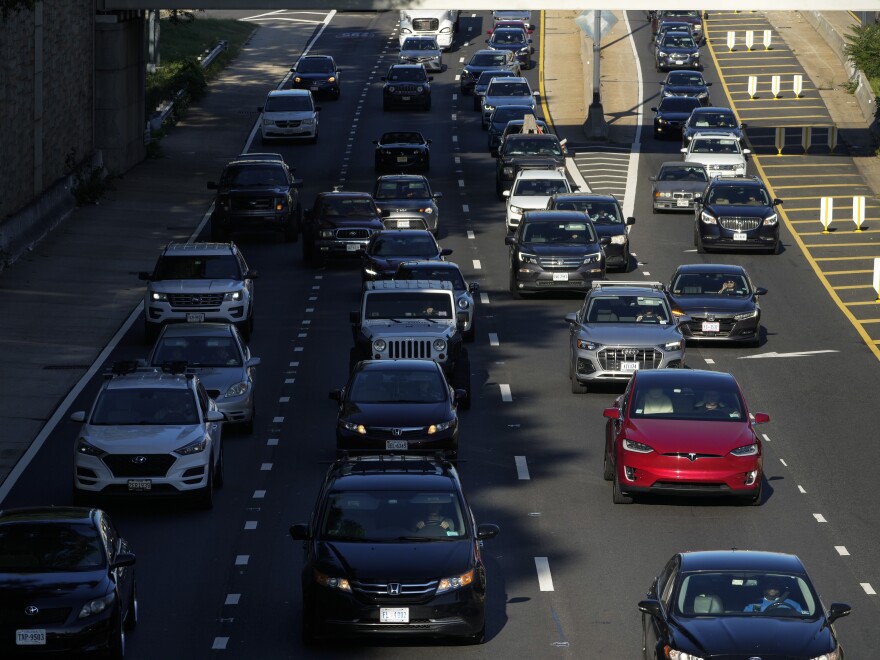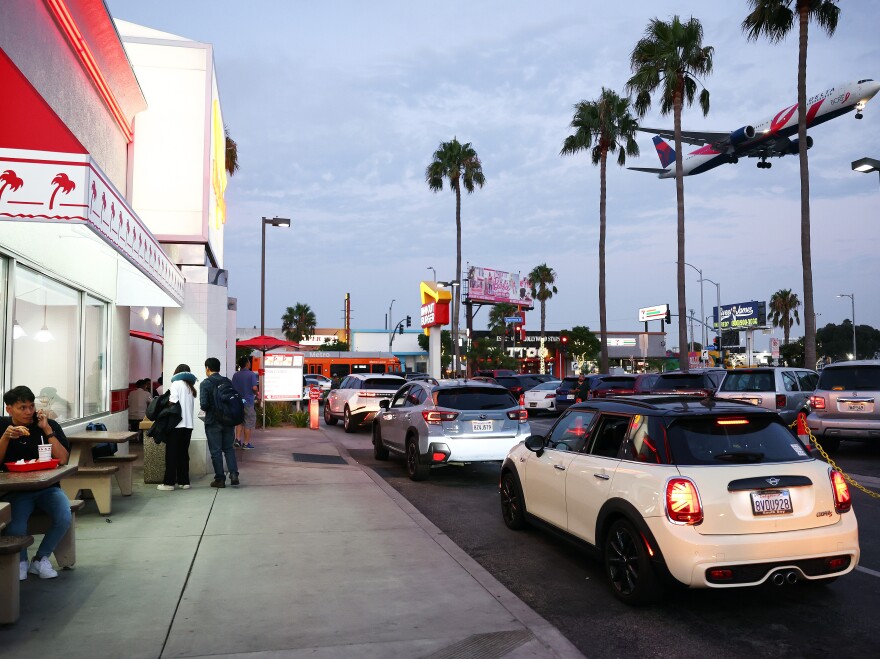Updated September 1, 2023 at 11:50 AM ET
This Labor Day weekend is shaping up to be a crowded one, from airports to interstates.
The Federal Aviation Administration predicts this will be the third-busiest holiday weekend of the year so far, behind the weekends of Juneteenth (which overlapped with Father's Day) and Presidents Day in February.
It's forecasting a peak of 52,000 flights on Thursday, compared to its daily average of 45,000.
Flying somewhere for Labor Day weekend? We’re forecasting a peak of 52,203 flights on Thursday, August 31. Get air travel tips to help you prepare at https://t.co/HzQWUCBzvV. #LaborDayWeekend pic.twitter.com/2yK7GT00rO
— The FAA ✈️ (@FAANews) August 28, 2023
The Transportation Security Administration (TSA) expects to screen more than 14 million passengers, which it says is almost 11% higher than last year at this time. It projects there will be more than 2.7 million passengers on Friday, its busiest day.
And AAA expects to see more traffic on the roads than it has in years, especially on Friday and Monday afternoons. It says Labor Day weekend bookings of flights, hotels, rental cars and cruises are up 4% domestically and 44% internationally over last Labor Day.
And it's not just the sheer number of travelers that could create a hassle.
Parts of the South are still recovering from Hurricane Idalia, which temporarily closed several Florida airports and disrupted thousands of flights earlier this week. Plus, American Airlines flight attendants voted to authorize a strike on Wednesday, while United Airlines flight attendants and Southwest Airlines pilots picketed outside airports across the country on Thursday.
David Koenig, airlines reporter for the Associated Press, is cautiously optimistic. He says the flight attendants aren't likely to actually call a strike anytime soon — in part because federal law makes it so hard for airline unions to do so — and air travel seems to have recovered from the impacts of Idalia.
But that doesn't mean there won't be cancellations, delays or other general inconveniences, he tells Morning Edition.
"The cautionary note is that airlines have struggled at times in the last couple of years, even during good weather, when air travel has come back the way it has," he says. "And we're also dealing with a shortage of air traffic controllers."
Here's what to know — and how to minimize stress — if you're heading out of town for the weekend.
If you're flying
TSA Administrator David Pekoske says the agency is prepared for the increase in travel volumes this weekend.
He said in a statement that it's working with airlines and airports to ensure wait times are no more than 30 minutes in standard screening lanes and 10 minutes in TSA PreCheck lanes — but made no promises.
"There are occasions where wait times may be longer, so we encourage you to arrive early, pack your patience and reach out to us before arriving to the airport if you have any questions on our security procedures or items you may bring," he added.
TSA advises arriving two hours ahead of your scheduled flight, leaving extra time to navigate busy airports.
To make your travel day even easier, Pekoske recommends packing properly (here's what you can and can't bring in your carry-on) and keeping an acceptable ID out and ready when it's time to go through security.
People should also call TSA Cares 72 hours in advance to request any special accommodations, and contact their airline ahead of time to make sure any car seats, strollers and pet carriers are allowed on the plane.
You can check airport status and delays on the FAA website and monitor flight updates through your airline's website or app.
If you're driving

If you're gearing up to hit the road this holiday weekend, you're not alone.
AAA anticipates the busiest travel time will be Friday afternoon when travelers will share the highway with daily commuters. The same goes for late Monday afternoon.
If you have any flexibility, it says, consider planning your drive for off-peak hours.
The transportation analytics company INRIX says the best times for your road trip are before 11 a.m. on Friday, after 6 p.m. on Saturday and after 7 p.m. on Monday. It expects minimal traffic impact on Sunday.
"The best times to travel by car over Labor Day weekend are early in the morning or in the evening," says analyst Bob Pishue. "If you must travel during heavy traffic, navigation apps and local departments of transportation can help steer drivers around long delays."
AAA recommends taking some time to prepare your car before getting on the road.
"It's important that drivers remember that their vehicle can break down just as easily over Labor Day weekend as it can at any time of year and that they take every precaution to ensure that their cars are road ready," says Amy Parmenter, spokesperson for AAA in Greater Hartford.
They advise checking tire pressure and tread, making sure your battery is in good condition, checking your air conditioning, windshield wipers, fluids and headlight functionality and fully charging your cell phone before driving.
AAA also recommends stocking your car with a summer emergency kit, including jumper cables, tools, first aid supplies, a flashlight, road flare or reflective triangle, extra medications, water and snacks.
The broadcast interview was produced by Ziad Buchh.
Copyright 2023 NPR. To see more, visit https://www.npr.org.



